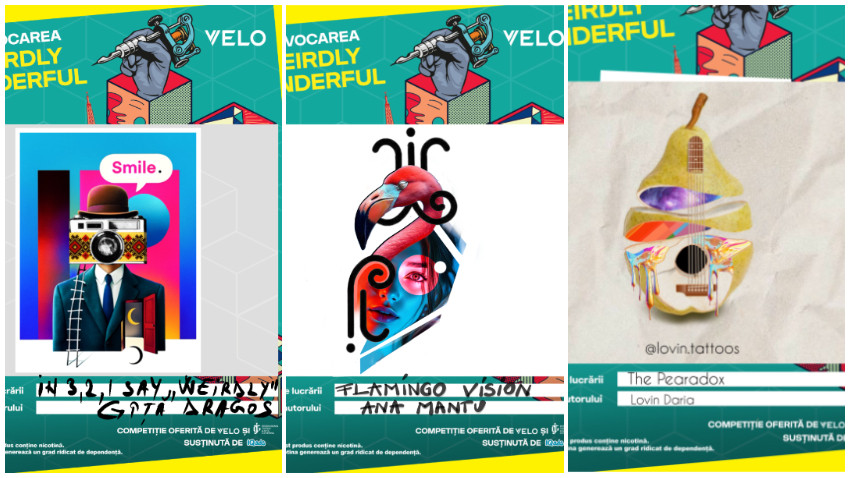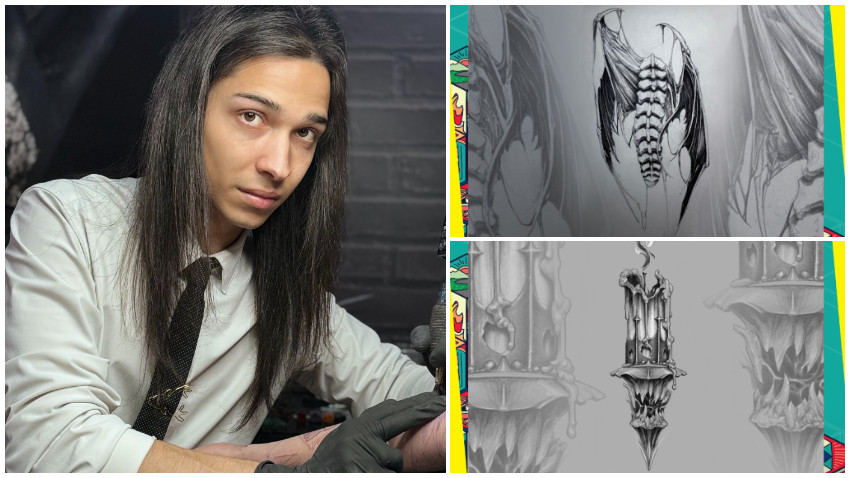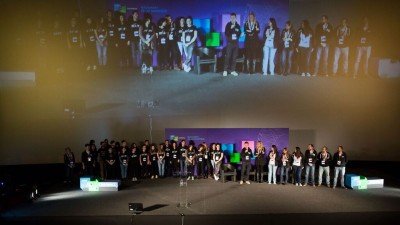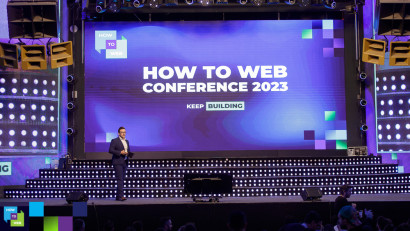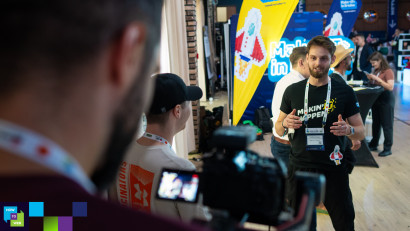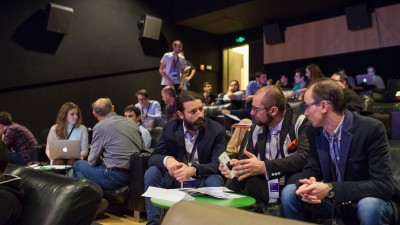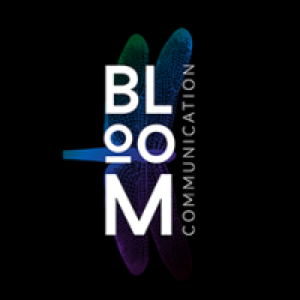"Possibility" is the word-motto that drives Karen Stone, a Transformation Expert and Founder of Mindshift Performance, in her work. "Possibility" implies a growth mindset, the ability to change, openness. With 15 years of experience, Karen helps organizations grow and adapt to the changes around them through cultural transformation, taking an approach based on psychology and neuroscience.
"There will ALWAYS be a place for humans in a tech-enabled world. Leaders need to develop change-readiness; to train for agility and understand how first to change yourself, then to help others change", says Karen.
Karen was recently in Romania, a Keynote Speaker at How to Web Conference 2024, a conference that brought together over 3000 participants. On this occasion, we talked with Karen Stone about how the labor market and leadership is changing in 2024, what are the biggest challenges for organizations and how people are adapting to all these changes.
Important chapters in your experience
I love a good narrative! I think it would be something like, ‘The Scary Year" growing up and feeling uncertain about my place in the world. Next chapter would be "Searching" starting to understand my strengths, explore career options and polish my skills. Then "Buckling Up" as I set up my own business and learnt my way at the same time as bringing my two sons into the world.
"Unfurling" came next as I transformed into a consultant learning about how humans work (at the same time as exploring my own human potential, both in the world of work, as a parent and a martial artist too).
After that came "Striving" back in the corporate world heading up global talent roles in SAAS companies experiencing transformation. That was about building up a function from the ground, building a robust and strategic talent strategy, learning through mistakes along the way and travelling around the world.
That brings me to my current chapter "Embodying" where I get to blend my experience, strengths and skills to focus my own business on helping transformation - at a leader, team and culture level; to enable organisations to re-wire their cultures to be future-fit and equipped to navigate on-going change, sustainably. I get to consult with forward thinking organisations and co-create neuroscience-backed transformations.
Your beginnings: expectations & fears
I discovered, in my youth, that mindset is the difference that makes a difference. I learnt this as an athlete in my teenage years and it’s remained true throughout my career. In my first corporate job in retail at Harrods, I realised I was good at helping others excel and I really leaned into that. At the same time, I was asking myself the following questions: ‘Am I good enough?’ ‘What difference can I make?’ ‘What can I learn?’ ‘Where can I add the most value?’
The positive force
It was recognition that leaders leave the biggest imprint on their team, and this needs to be a positive force, one that brings energy into and beyond the team, not sucks it away. This ‘positive force’ supports both higher engagement and retention of talent.
Leaders should be enablers of healthy high performance and thriving employees and businesses, yet they’re usually not equipped with the up to date skills to lead with inclusion, generational and cultural nuances which requires regular ‘watering’. If leaders aren’t demonstrating a learning/growth mindset, it’s probably true that neither are their teams.
I’m a strong advocate for positive leadership where they work on optimising their strengths, mitigating gaps and lead with a human-centred approach where everyone can bring their best selves to work and do their best work. Don’t get in the way of potential, identify, maximise and release it into the business.
What are the challenges for leaders in 2024
- Talent - hiring, developing, maximising and retaining the best talent.
- Capacity - how to do more with less and how to focus on the essential (not the 25 things on your ‘to do’ list) There are always too many priorities and not enough time. So we’re never going to get more time so we’d better take a look at those priorities!
- One of those priorities, no matter the leader’s role, should be on how to create and sustain healthy high performance.
- And to recognise it’s a practice - you don’t go to the gym once and expect transformation to happen, so you shouldn’t think it's something that’s ever ‘done’, it’s just something you do everyday.
One of the most powerful ways I support leaders is to help them understand, from a practical neuroscience perspective, how the brain typically operates and show them ways to override the default network and build new, brain-friendly habits that are designed for today’s challenges. Once they can apply this to changing themselves, I help equip them with the tools they need to help their teams change.
Helping leaders manage cognitive overload and strengthen their adaptability utilising habit loops is so powerful. Resilience is another practice that brings massive wins. I love it when I see the tangible results with increases in performance, productivity and engagement, it’s why I love what I do at Mindshift Performance!
How is the role of leaders changing in the context of the social & technological transformations
There will ALWAYS be a place for humans in a tech-enabled world. We should think about AI as Assisted Intelligence - driven by humans with the automisability that AI provides to help create efficiencies and improve productivity. Leaders need to develop change-readiness; to train for agility and understand how first to change yourself, then to help others change.
Recent stats are clear, a Gallup study found most leaders (44%) don’t know when or why their employees use AI with only 1 in 10 employees using AI on a weekly basis and 70% rarely using it.
For leaders, the first step towards effective AI integration is acknowledging and addressing their own knowledge gaps regarding AI usage within their teams. Leveraging cognitive flexibility helps them to think beyond the traditional and into the realms of adaptation for future business realities. Leaders need to foster an environment where communication about tech tools is open and encouraged. Leaders must also strive to understand the specific needs and readiness of their workforce to utilise AI effectively.
The labor market in 2024
It’s challenging! Talent shortages, economic, political and social instability will continue to challenge organisations. This affirms for me the importance of reskilling talent to be adaptable for constant change whilst continuing to thrive and live a balanced life where wellbeing and high performance are equally important.
Encourage conversations about reskilling, where employees explore lateral opportunities and future-think their career options, working today to build the skills that will be important in the future. On-going, open career conversations like this where talents, skills and experiences and career drivers are discussed is a powerful way to help team members navigate within organisations so the best talent is retained.
How can organisations work to build cultures where change is always occurring? For me, it has to be about a solution with habits at the heart. Organisations don’t transform, people do and people run on habits (thinking, doing and feeling habits), so we need to know how to update our habits, culling those that no longer serve us and establish new ways of operating, focused on the essential, not the many.
Tip - 3 priorities is optimal, once we go beyond that, it’s very difficult to actually make a meaningful impact when you have multiple priorities.
The word that you don't want to hear anymore
I don’t want to hear the word ‘But’ - I always try to replace that word with ‘And’ for much better feedback and communication. :)
The word that defines your vision
The word that best defines my vision is ‘Possibility’ which aligns back to fostering a growth mindset.





